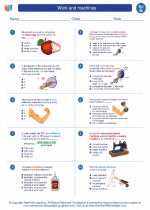Cations
What are cations?
Cations are positively charged ions formed when an atom loses one or more electrons. They are formed when an atom loses electrons to achieve a stable electron configuration.
How are cations formed?
Cations are formed when atoms lose electrons. This can happen through various processes such as ionization, oxidation, or reactions with other substances.
Properties of cations:
- Cations are positively charged.
- They are smaller in size compared to their parent atoms.
- Cations are attracted to the negative electrode during electrolysis.
- They are often found in ionic compounds.
Examples of common cations:
Sodium ion (Na+), Potassium ion (K+), Calcium ion (Ca2+), Aluminum ion (Al3+), and Ammonium ion (NH4+).
Study Guide:
To understand cations better, it's essential to study the following:
- Atomic structure and the role of electrons
- Ionization process and how cations are formed
- Properties and characteristics of cations
- Common cations and their significance in chemistry
Additionally, practicing writing electron configurations and understanding the concept of oxidation states will help in mastering the topic of cations.
Hope this helps!
.





